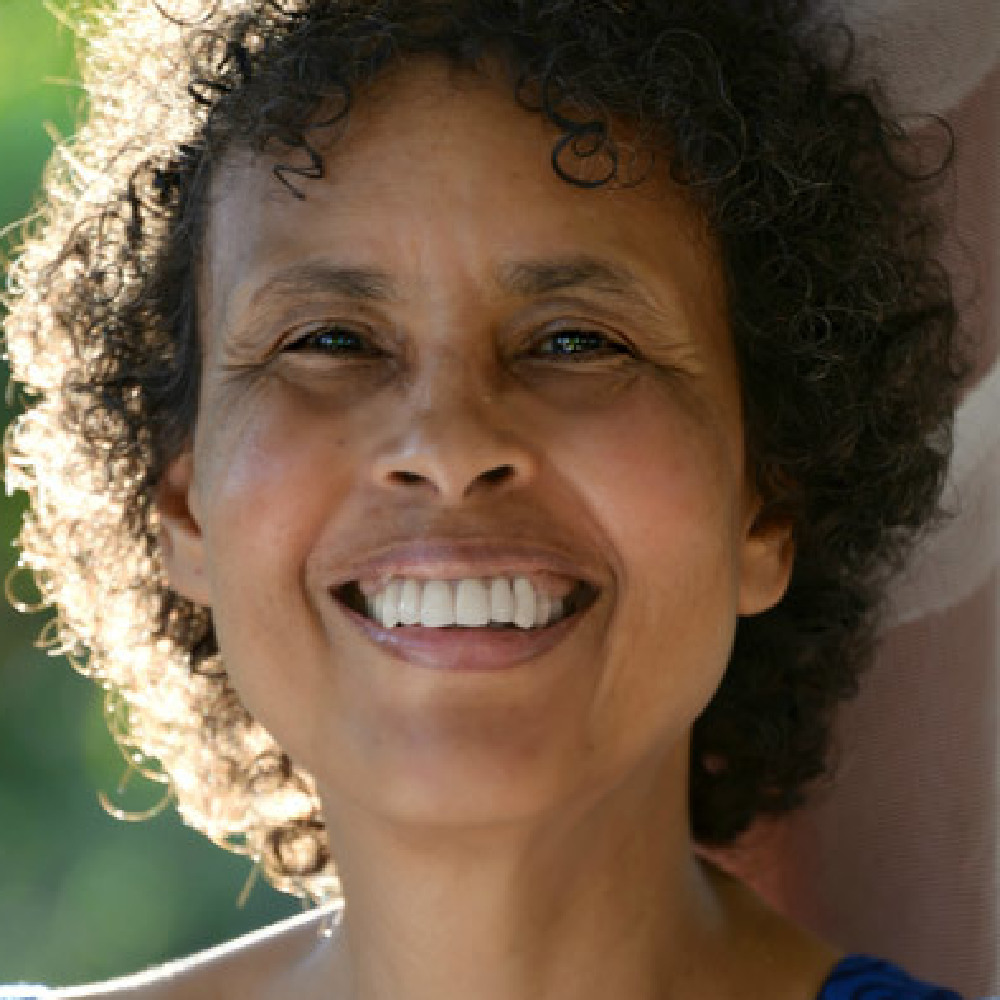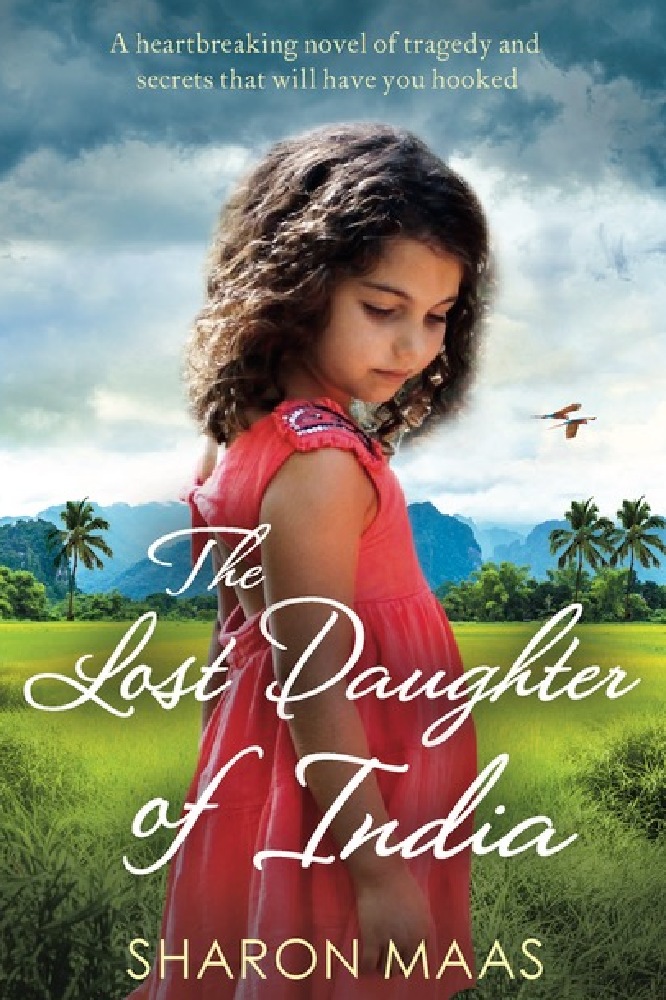How well do I know the country?
There are many levels of knowledge:

Sharon Maas
Level one: I grew up there. Basically, I can only write with full knowledge aout Guyana. Growing up in a specific country gives you an insight that is otherwise impossible. You know the little quirks, the smells, the sounds, that can never be gained through research. This is why I love writing Guyana-set novels.
Level two: I’ve lived there for a long period of time. For me, India, the UK, Germany fall into this category. I can write with some authority on these countries.
Level three: I’ve visited as a tourist, lived there for a short period. Many countries fall into this category; everywhere I’ve ever been on holiday!
Level four: I’ve never been there. This level has only one remedy: research, research, research!
Descriptions
I find descriptions difficult. How can I bring across the power and majesty of a tropical storm? The special atmosphere of an Indian village just before dawn: the sound of housewives sweeping outside their homes, the squirt of milk into buckets by roadside milk sellers, the queues in front of the public water taps, the colours of the saris of women lined up with their water pots, the farmers leading their bullocks out to the fields? As I am usually not actually there while writing I have to pull all these descriptions out of my memory, and it’s not always easy. Often I simply lack the right words. I have the pictures in my mind but choosing the words to get that picture into the reader’s mind – that’s the hardest part of writing for me.
Language
Do they speak English? If so, with which dialect – Guyanese, London, Caribbean, Indian? I need to get the inflections just right. I have to remember conversations I’ve had – what words were used? And how do I write this so as not to irritate readers, who generally don’t like dialect? And what if words are used in a different sense than most English speakers understand? I use the word “cutlass” quite frequently in my Guyana novels, and once I was told off for this: it’s a machete, I was told; a cutlass is something else. But in Guyana and the Caribbean a machete is a cutlass, so I stuck with that.
I need to be aware of different meanings words have in different countries; this can be embarrassing. A thong is not the same in the UK and Australia. Same for fanny and pants in the UK and the US. Not being aware of that could lead to some very confused readers!
If the language spoken is not English I need to be extremely careful, especially if I don’t know that language. I use foreign words sparingly as a result, and if I’m not sure of the meaning or correct spelling I need to make sure.
Cultural clichés, and avoiding them
Cultural clichés are there for a reason. It’s one thing to try very hard to avoid them, but it doesn’t mean I can’t have a Frenchman walking home with a baguette sticking out of his bag.
Some writers go out of their way to avoid cultural clichés by making their characters the very opposite to the cliché: an Asian woman kickass instead of demure, for instance. This seems to me too engineered. What I try to do is give the character depth and personality. So what if she’s a typical Indian housewife serving her husband: I will try to make her a living, breathing woman with cares and hang-ups and problems of her own. Cultural clichés are superficial. They can be overridden by adding dimension, by good writing. I’m not at scared of them.
Religion
That said, religion is one of the areas where it’s so easy to fall into clichés that actually removes depth from the character. That is why I’m very careful in this area. I try to understand the characters actual feelings – when he/she goes to church or temple or mosque, how he/she feels during or after prayer, what expectations he/she has from prayer etc. There are so many nuances to religious experience and they can’t all be summed up or dismissed by references to a man in the sky. I try to capture these nuances, and add some depth to the notion of religion.
More: 10 Things I Want My Readers To Know About Me By Sharon Maas
Manners
Every country, every culture has its own code of etiquette, and it’s so important to get this right! Do men defer to women, or the other way around? Which had do you use for eating in India? Are you allowed to shake hands? Can women look men in the eye? I need to be sure that natives of the county in question behave as expected, and if they do break the rules, it’s because of some quirk in their character, not due to my sloppy research. A difficult one, if I don’t know the country like I know my own kitchen cupboard!
Clothing
Another thing to get right. Every country has it’s own codes. In some countries, it’s OK for a man to go to his office job wearing short trousers. In other countries, a man wearing short trousers, except on the beach, singles him out as uncouth, uncouth. How we dress says something about us, and we will be judged, whether we like it or not. So, do my characters abide by dress code, or do they rebel? Are they even aware of it? How sensitive are they to the country they are in? Do my female characters wear see-through or short skirts or low cut dresses in India, and if so, how do others react? Do they blend in?
It means that I need to know the prevalent dress codes in that country before I even start writing, and know my characters well enough to let them make their decisions. In Lost Daughter of India my central character, Caroline, is a wealthy American and soon feels out of place in the Mumbai slums due to her clothing. So she makes the decision to shed her expensive Western attire and go native – and immediately feels more at home, and is more accepted.
Women, relationships, marriage
I need to know and understand the prevailing attitudes here. Not with a judgmental we-Westerners-know-everything-better; but from the point of view of the inhabitants. I can’t judge them from the aspect of prevailing feminist sensitivity, for instance. In Lost Daughter, Asha’s foster mother, Sundari, is a dedicated housewife who loves her job. Caroline, a modern Westerner, tries to judge her for her lifestyle, but Sundari sticks up for herself and her choice. Similarly, we in the West tend to categorically reject the idea of arranged marriage. I’ve tried to portray it from the standpoint of Indians, with Janiki, a modern educated Indian young woman, making an impassioned speech in favour of it and comparing it favourably to Western mating rites.
Food and cooking
Perhaps nothing brings across the “flavour” of a country as much as food! I love writing about food. The sizzling puris in an Indian market, a juicy mango, a feast lovingly prepared: all of these aromas and colours and flavours help to create culture. I love making my readers’ mouths water and seize every chance I can get! Though looking back, Lost Daughter has fewer “foody” scenes than my other books.
Diving in.
Last but not least, I need to feel the country. Know it not just in my head, but in my heart and in my bones. Love it, care for it. Dive into it internally, conjure it up inside my mind, and then simply – write. Hopefully my readers will follow me there!


